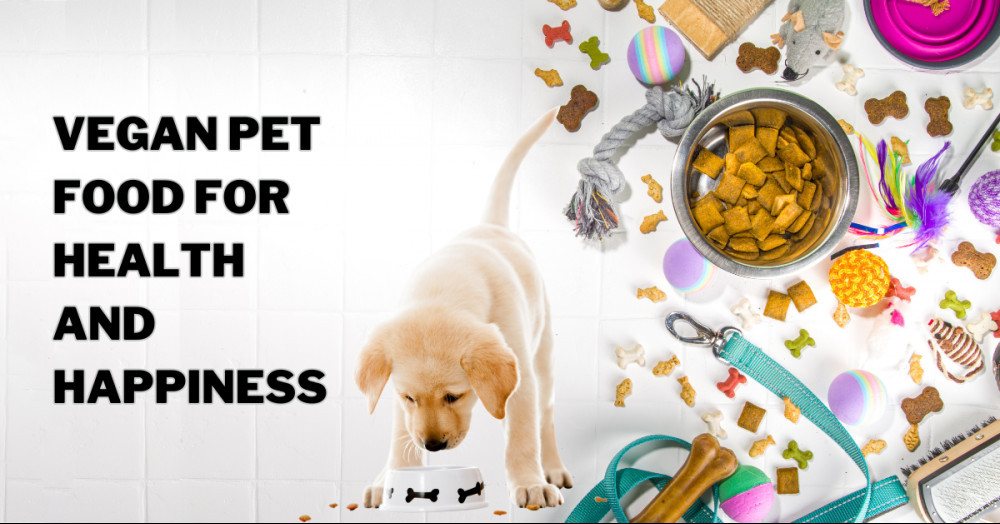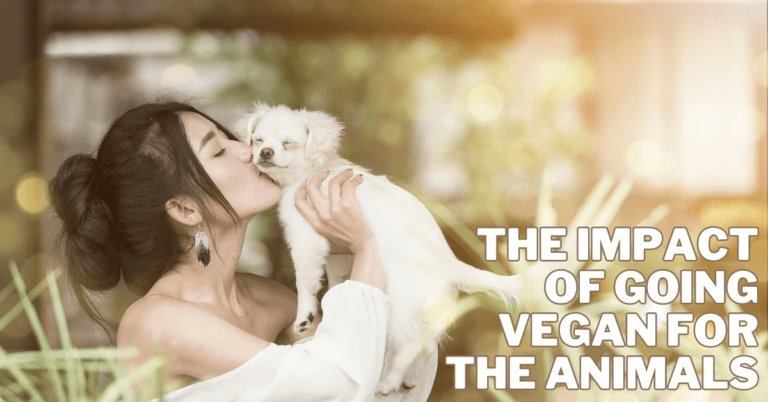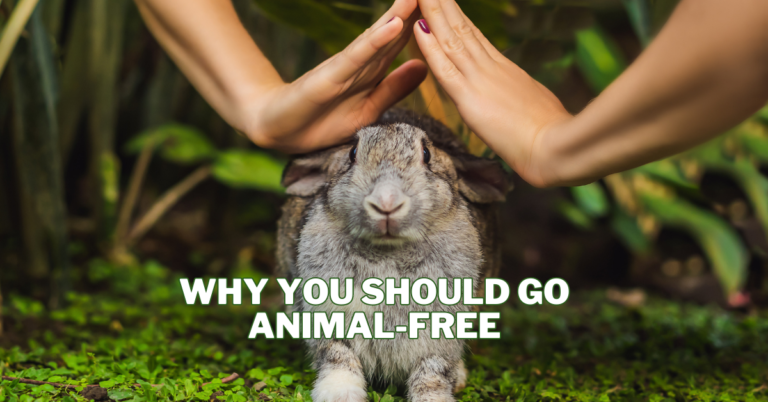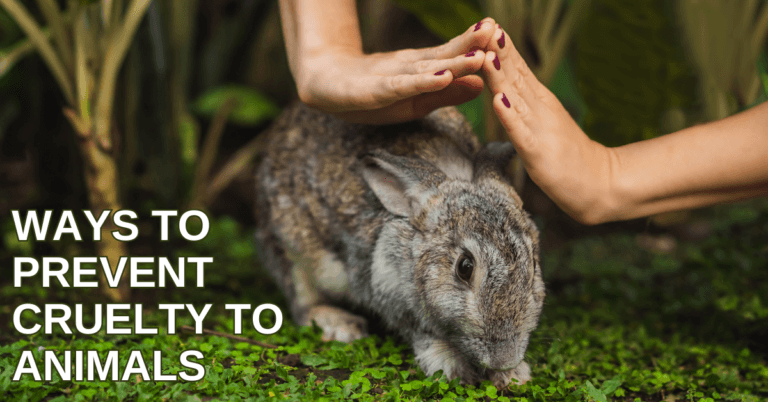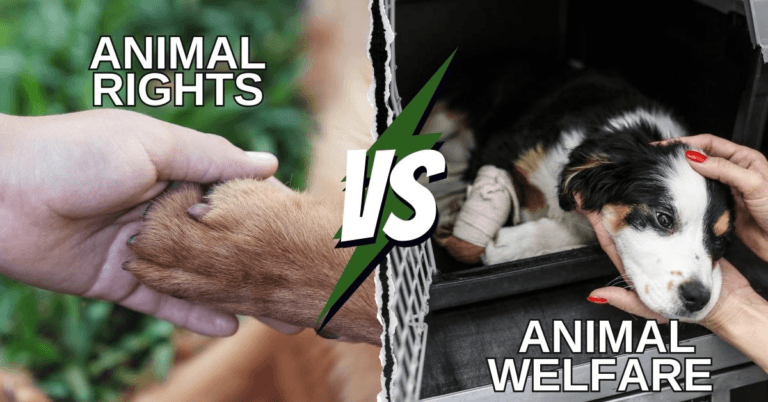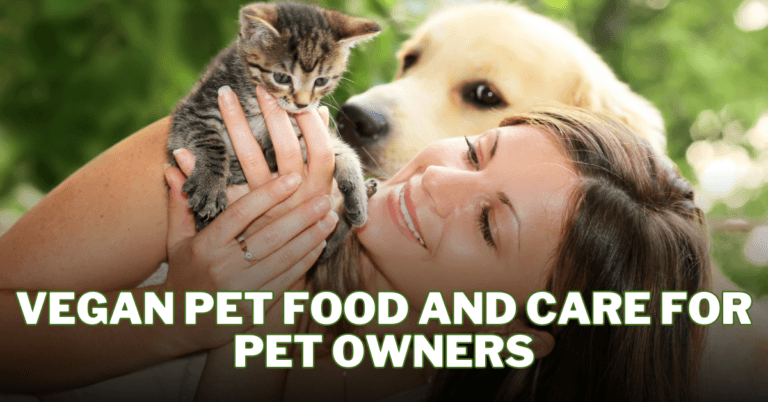Best Vegan Pet Food For Health And Happiness
Best Vegan Pet Food For Health And Happiness
In recent years, there has been a significant shift in our understanding of our diets and those of our furry companions.
As the world becomes increasingly conscious of the environmental and ethical implications of our food choices, many pet owners are extending this mindfulness to their pets.
This shift has given rise to the concept of vegan pet food, designed to provide our animal companions with the nutrition they need while aligning with principles of compassion and sustainability.
In this article, we'll explore the concept of vegan pet food, its science, its impact on our pets' well-being, and the ethical and environmental implications of this growing trend.
Welcome to the world of vegan pet food, where health and happiness for our animal companions meet the values of a changing world.

The Basics Of Vegan Pet Food
Vegan pet food represents a plant-based alternative to traditional animal-derived pet food, designed to meet pets' nutritional needs while aligning with ethical and environmental principles.
The absence of animal ingredients, such as meat, poultry, fish, and dairy, sets vegan pet food apart from its traditional counterpart.
Instead, it relies on a carefully selected combination of plant-based sources to provide essential nutrients.
Key ingredients commonly found in vegan pet diets include high-quality plant proteins like peas, lentils, and soy, which provide the necessary amino acids.
These diets are often fortified with essential vitamins and minerals, including B12, taurine, and iron, to ensure that pets receive a complete and balanced diet.
Furthermore, vegan pet foods frequently incorporate grains like rice, quinoa, oats, and vegetables such as sweet potatoes, carrots, and spinach to supply carbohydrates, fiber, and a spectrum of essential vitamins and minerals.
By thoughtfully combining these ingredients, vegan pet food aims to provide pets with a nutritionally sound and cruelty-free diet while also addressing concerns about the environmental impact of conventional pet food production.
However, it's crucial for pet owners considering a vegan diet for their pets to consult with a veterinarian to ensure their specific dietary needs are met.
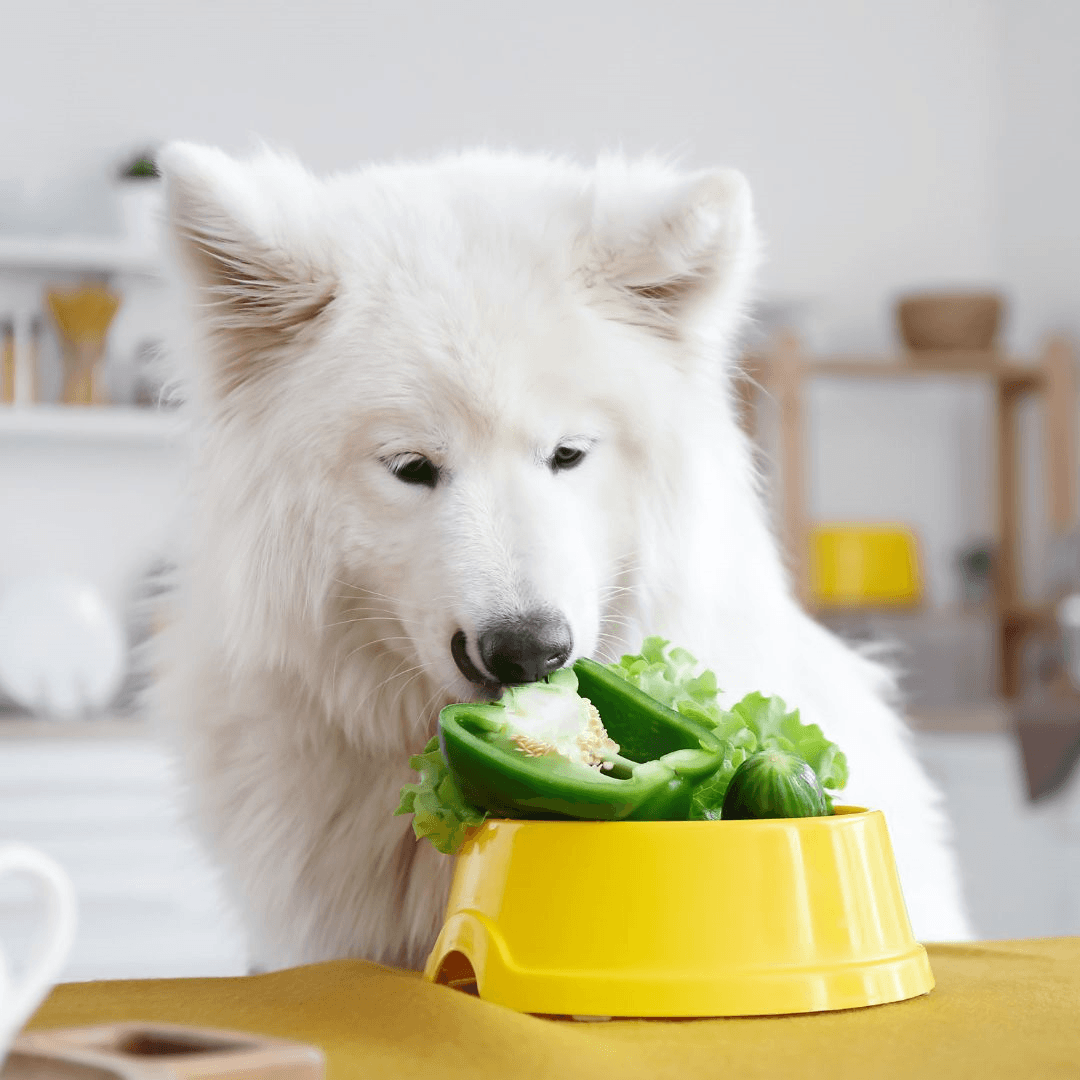
1. Nutritional Requirements
Understanding the specific nutritional needs of different pets is essential when considering a vegan diet.
Dogs, as omnivores, have relatively flexible dietary requirements and can thrive on well-balanced vegan diets that provide adequate protein from sources like peas, lentils, and soy, along with essential amino acids, vitamins, and minerals.
However, it's crucial to ensure that their diet includes nutrients like taurine, lacking in plant-based foods, and to consult a veterinarian for guidance.
For cats, obligate carnivores, transitioning to a vegan diet is more challenging, as they require certain nutrients found primarily in animal tissues.
While vegan cat foods are available, they must be carefully formulated to provide essential amino acids, vitamins, and minerals like taurine, A, and arachidonic acid.
Rabbits, natural herbivores, can thrive on a vegan diet consisting of hay, fresh vegetables, and fortified commercial rabbit pellets.
A vegetarian diet is suitable for rodents like guinea pigs and hamsters, but they have specific vitamin C requirements that must be met through supplements or vitamin C-rich foods.
Overall, providing a vegan diet to pets requires careful research, proper planning, and consultation with a veterinarian to ensure that all their unique nutritional needs are met while adhering to ethical and environmental considerations.

2. Ethical Considerations
The ethical considerations behind choosing vegan pet food are multifaceted and compelling. Firstly, it's rooted in a deep concern for animal welfare.
Many pet owners who embrace vegan pet diets do so out of a desire to extend their compassion for animals beyond their pets.
Traditional pet foods often rely on the industrial farming of animals, contributing to issues like factory farming, inhumane treatment, and overexploitation of natural resources.
By opting for vegan pet food, pet owners align their pet care choices with a philosophy of non-harm and respect for all living beings.
Furthermore, the environmental impact of the pet food industry must be addressed. Traditional pet food production is resource-intensive, with vast land, water, and energy used to produce meat-based pet foods.
This industry also contributes to deforestation, habitat destruction, and greenhouse gas emissions.
By choosing vegan pet food, pet owners reduce their pets' carbon pawprint and help mitigate the environmental consequences associated with the pet food supply chain.
It's a conscientious choice that acknowledges the interconnectedness of our pets' well-being with that of the planet.
Additionally, the ethics of vegan pet food extend to the desire for a more sustainable future.
By supporting plant-based pet food options, pet owners signal the demand for more environmentally responsible and cruelty-free choices to the market.
This demand can drive innovation in the pet food industry towards more sustainable practices, benefitting pets and the broader ecosystem.
In essence, the ethical considerations behind choosing vegan pet food reflect a growing awareness of our choices' profound impact on animals, the environment, and the collective well-being of all living creatures on our planet.

3. Environmental Impact Of Pet Food
The environmental implications of traditional pet food production are substantial and far-reaching.
Deforestation is one of the most significant issues, particularly in regions like the Amazon rainforest.
To meet the demand for meat-based pet foods, vast swaths of forests are cleared to create grazing land for livestock used in pet food production.
By releasing carbon held in the soil into the atmosphere, this deforestation causes habitat loss, imperils species, and contributes to climate change.
Overfishing is another concerning aspect of traditional pet food production, especially for fish-based pet foods.
The large-scale fishing operations required to meet the demand for fish in pet foods often lead to overfishing, which can deplete fish populations and disrupt marine ecosystems.
This affects the targeted fish species and endangers other marine life dependent on those species for food and habitat.
In addition, the pet food industry contributes to greenhouse gas emissions, a significant driver of global warming.
The production of meat-based pet foods involves raising livestock, which generates methane, a potent greenhouse gas.
Additionally, the transportation and processing of pet food ingredients contribute to carbon emissions.
Therefore, the environmental footprint of traditional pet foods extends beyond deforestation and overfishing to encompass the broader issue of climate change.
Considering these environmental consequences, the shift towards more sustainable and plant-based pet food options, which typically have a lower environmental impact, is gaining momentum.
By choosing such options, pet owners can reduce their pets' contribution to deforestation, overfishing, and greenhouse gas emissions, aligning their pet care choices with broader environmental and ethical considerations.
This shift benefits the planet and sends the pet food industry a clear message about adopting more sustainable and responsible practices.
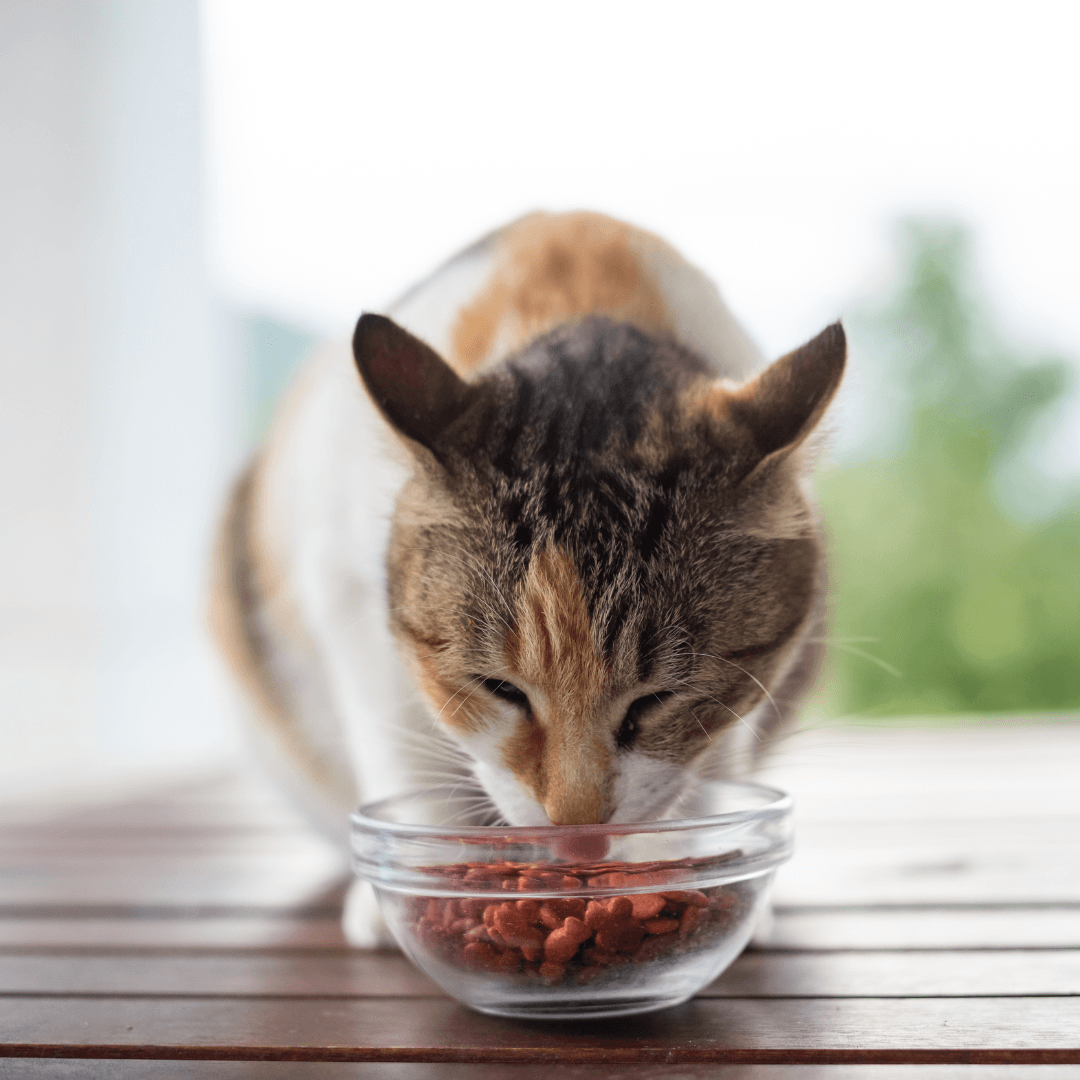
4. Transitioning To A Vegan Diet
Transitioning your pet to a vegan diet should be approached with care and patience to ensure their health and well-being.
Start by consulting with a veterinarian who is knowledgeable about vegan pet nutrition. They can assess your pet's current health and provide tailored guidance.
A gradual transition is key to avoiding digestive issues. Over several weeks, gradually increase the proportion of vegan food in their diet by blending small amounts of vegan pet food with their regular meal.
If your pet exhibits any symptoms of digestive distress or allergies during this time, keep a close eye on them and visit your veterinarian.
Be prepared to adjust the transition timeline based on your pet's response.
Ensure that the vegan pet food you choose is nutritionally complete and balanced for your pet's species, and consider supplements like taurine for cats, as these nutrients may not be present in sufficient quantities in plant-based diets.
Throughout the transition and beyond, attentive monitoring of your pet's health and regular vet check-ups will help ensure a smooth and successful transition to a vegan diet that supports their health and well-being.
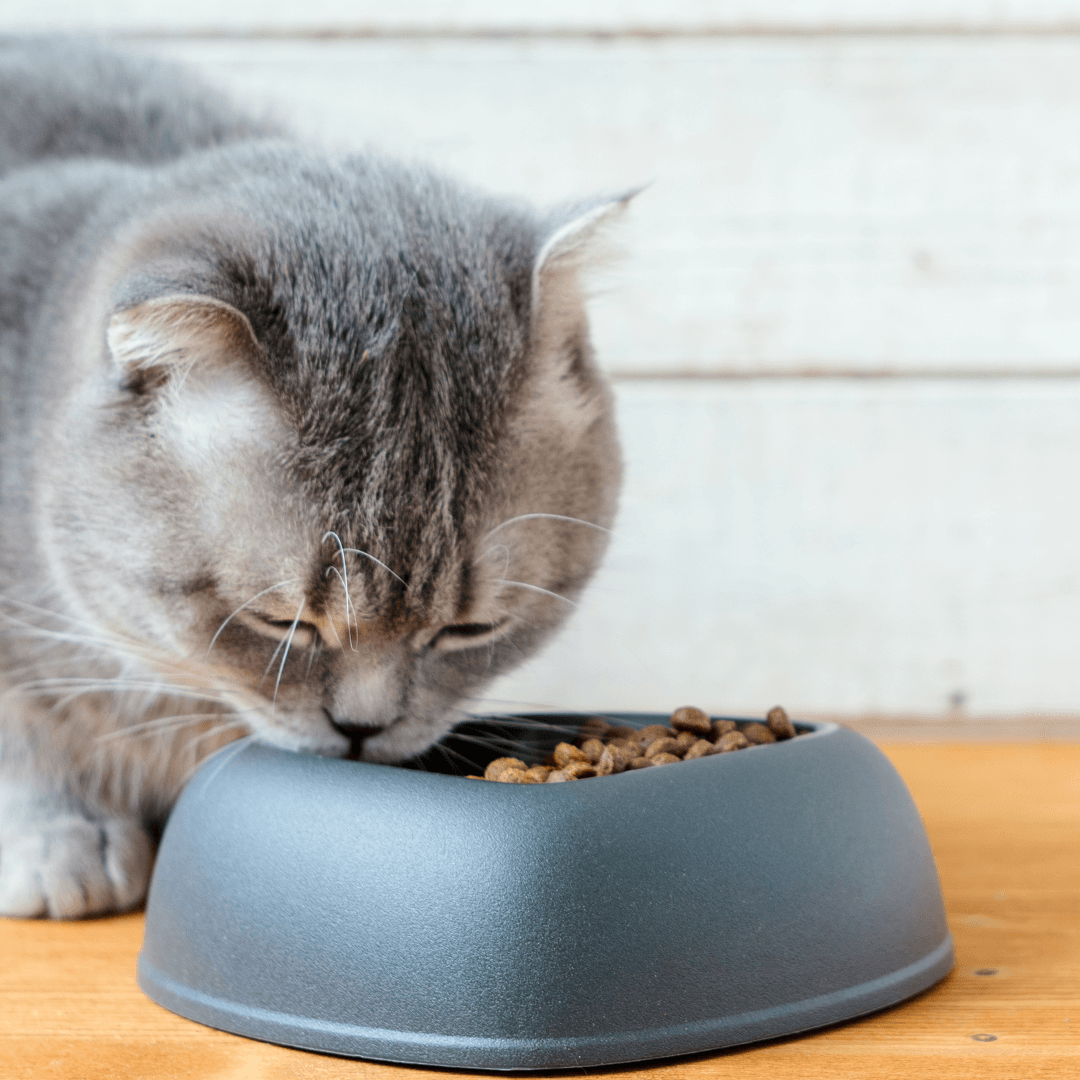
5. Balancing Nutrients
Ensuring your pet receives all essential nutrients on a vegan diet is crucial for their health and well-being.
Whether your pet is a dog, cat, rabbit, or another animal, start by choosing a high-quality commercial vegan pet food specially developed to match the nutritional needs of that species.
These foods are typically fortified with essential nutrients like vitamins (e.g., B12, D), minerals (e.g., calcium, iron), and amino acids (e.g., taurine, methionine) to make up for potential deficiencies in plant-based diets.
It's essential to follow the feeding guidelines on the product's packaging or consult a veterinarian to ensure you're offering the right portion size for your pet's age, size, and activity level.
In addition to commercial vegan pet food, you can incorporate small amounts of fresh, pet-safe vegetables and fruits into your pet's diet to provide added fiber, vitamins, and antioxidants.
Be cautious, though, and find out which fruits and veggies are safe for your pet because some can be dangerous.
Supplements may also be necessary to meet specific nutrient requirements, especially for cats and dogs.
Cats, for instance, require taurine, arachidonic acid, and vitamin A, which may need to be provided through supplements or specific plant-based sources.
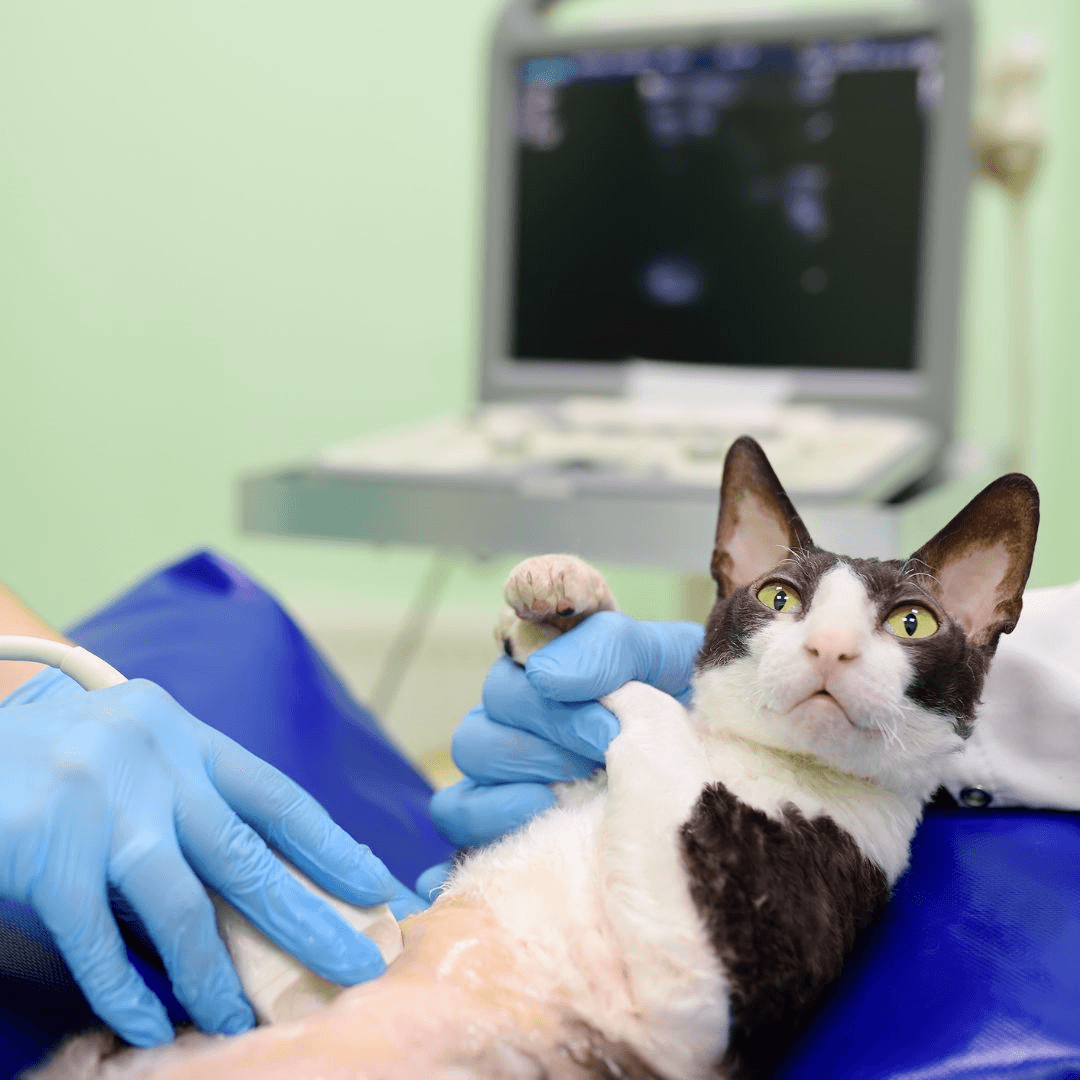
6. Monitoring Your Pet's Health
Monitoring your pet's health on a vegan diet is essential to ensure they are thriving and receiving all the necessary nutrients.
Regular veterinary check-ups are a cornerstone of this process. Your veterinarian can perform comprehensive health assessments, including blood tests, to detect nutrient deficiencies or imbalances.
Specifically, for pets on a vegan diet, monitoring for nutrient deficiencies such as taurine, vitamin B12, and certain amino acids (like methionine) is crucial.
Signs of nutrient deficiencies may include lethargy, coat and skin problems, gastrointestinal issues, unexplained weight loss, changes in behaviour, or changes in urinary habits.
Be attentive to these signs and consult your veterinarian promptly if you notice any.
Additionally, maintain a journal of your pet's daily food intake, exercise routine, and any observed changes in behaviour or health.
Regularly weigh your pet to track their weight, as unexplained weight loss or gain can be an early indicator of health issues.
Remember that the transition to a vegan diet should be gradual, and if any issues arise, consult your vet to make appropriate adjustments to the diet.
An open line of communication with your veterinarian and vigilant observation of your pet's well-being is key to ensuring they thrive on a vegan diet while maintaining their overall health and happiness.
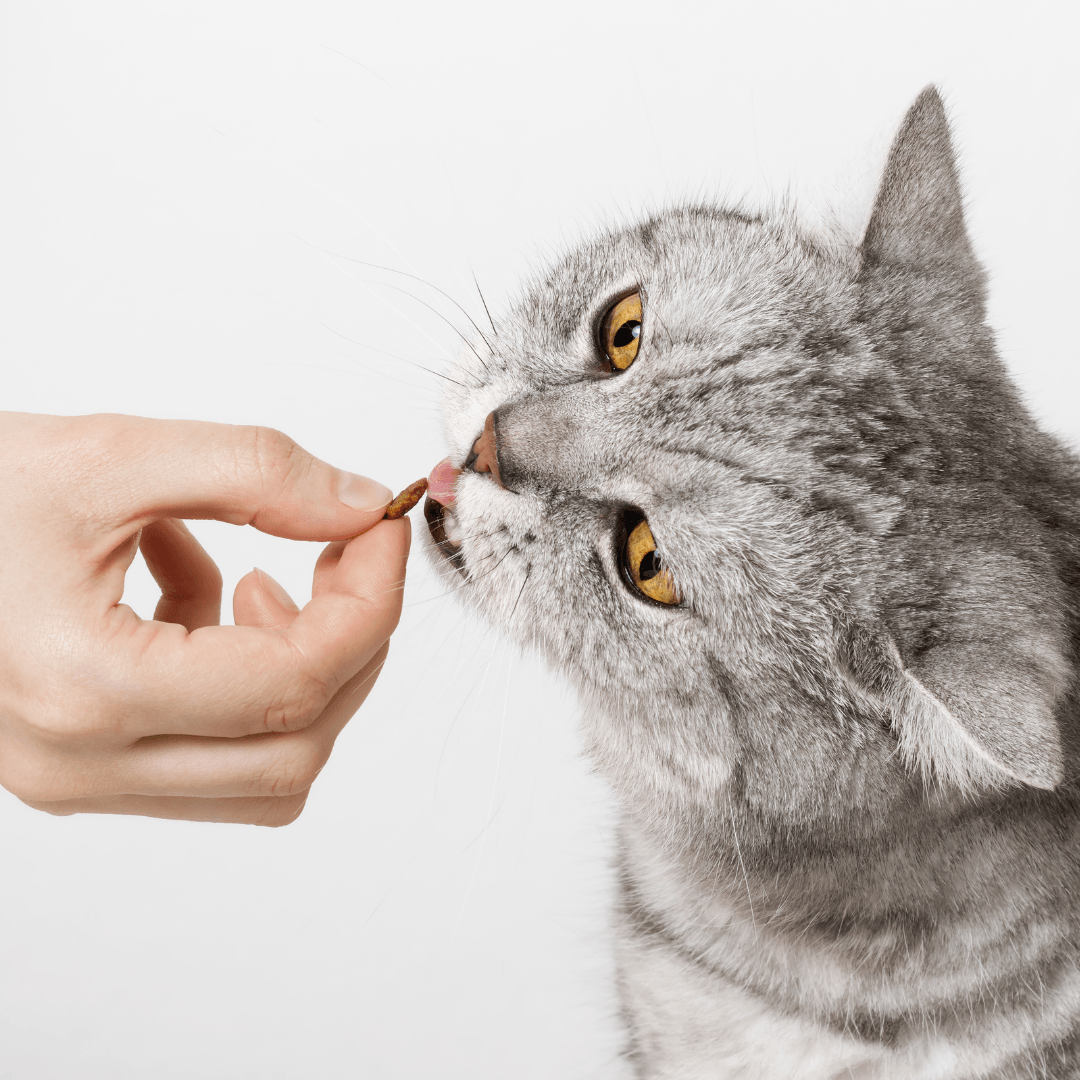
7. Challenges And Considerations
Feeding pets a vegan diet, while ethically and environmentally driven, comes with certain challenges and considerations.
First and foremost, not all pets may adapt seamlessly to a vegan diet. As obligate carnivores, cats have evolved to rely on nutrients predominantly contained in animal tissues.
Transitioning them to a vegan diet requires meticulous planning and the use of supplements to provide essential nutrients like taurine and arachidonic acid.
Being more omnivorous, dogs may have an easier time with a vegan diet, but individual sensitivities can vary.
Some pets may develop allergies or sensitivities to certain plant-based ingredients commonly found in vegan pet foods, such as soy or gluten.
Therefore, carefully selecting commercial vegan pet food and monitoring for adverse reactions is vital.
Furthermore, your pet must consult a veterinarian before starting a vegan diet to assess their unique dietary needs and provide professional guidance throughout the transition.
While the challenges are present, many pets thrive on well-balanced vegan diets when approached thoughtfully, aligning with their owners' values of compassion and sustainability.

8. Homemade Vegan Pet Food
Preparing homemade vegan pet food can be rewarding to ensure your pet's dietary needs are met while aligning with your ethical and environmental values.
When crafting homemade vegan pet food, start with a well-researched recipe with essential nutrients.
A typical recipe may include cooked lentils, brown rice, quinoa, sweet potatoes, and vegetables like carrots, peas, and spinach.
Adequate protein is crucial, so add plant-based protein sources like tofu or tempeh.
Supplements are often necessary to address specific nutrient requirements, such as taurine for cats or vitamin B12 for dogs.
It's essential to work closely with a veterinarian or a pet nutritionist to develop a balanced recipe tailored to your pet's needs and to ensure that your pet receives the proper vitamins, minerals, and amino acids.
Monitor your pet's health carefully, and if you notice any issues, consult your vet for adjustments.
Remember that homemade vegan pet food should prioritize balance and nutritional completeness to support your pet's health and well-being.
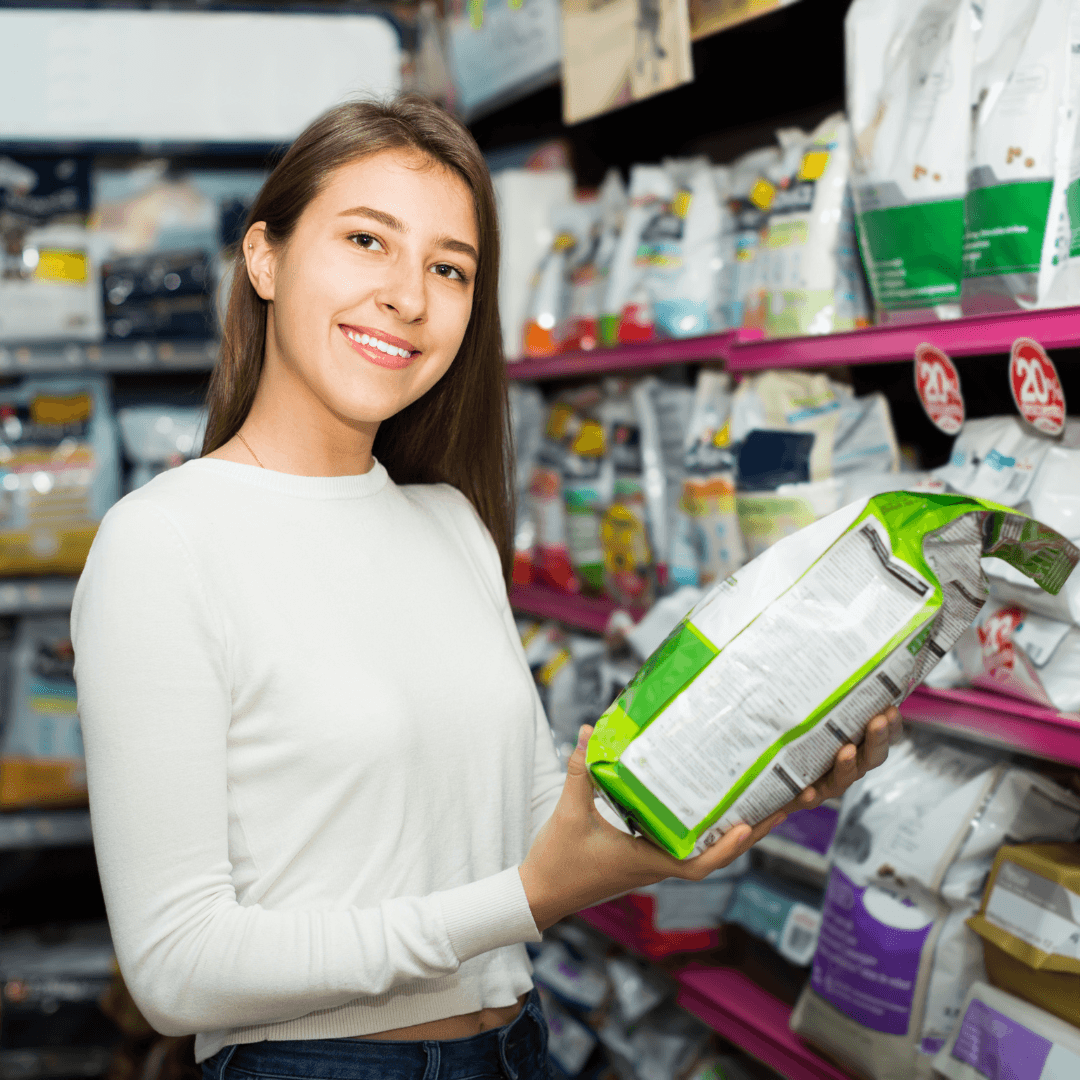
9. Choosing Quality Vegan Pet Food
Selecting high-quality vegan pet food ensures your pet receives balanced nutrition and remains healthy and happy. Look for brands that source their ingredients responsibly.
Quality vegan pet foods often use organic and non-GMO ingredients, which can reduce the risk of pesticide residues and genetic modification.
Examine the ingredient list to ensure it includes a variety of plant-based protein sources, whole grains, and vegetables.
Avoid products with excessive fillers, artificial additives, or excessive amounts of carbohydrates.
Ensure that the vegan pet food is formulated to meet the nutritional requirements of your specific pet, whether it's a dog, cat, or another species.
Look for statements like “complete and balanced” on the packaging. Look for goods with the appropriate certifications, such as the AAFCO (Association of American Feed Control Officials) declaration.
This indicates that the food has undergone testing to meet specific nutritional standards. If your pet has known allergies or sensitivities, review the ingredient list carefully to avoid potential allergens.
Some vegan pet foods may contain common allergens like soy or gluten.
Investigate the brand's reputation and history. To evaluate the product's effectiveness and how well animals have received it, read reviews and testimonies from other pet owners.
Consult a veterinarian experienced with vegan pet nutrition before making any dietary modifications.
They can make tailored recommendations depending on the particular requirements of your pet.
When introducing a new vegan pet food, gradually transition to prevent upset digestion.
Over several weeks, gradually increase the proportion of the new food by blending small amounts of the new food with the old.
By considering these elements, you can make an informed decision and feed your pet a high-quality vegan diet that aligns with your principles while guaranteeing their dietary requirements for optimum health and happiness.

10. Vet Guidance
Consulting with a veterinarian is paramount when considering dietary changes for your pet, especially when transitioning to a vegan diet.
A veterinarian is your best resource for meeting your pet's nutritional needs. Ask for recommendations from local animal welfare organizations or vegan pet communities to find a vet knowledgeable about vegan pet diets.
You can also inquire at vegan-friendly pet stores or clinics, as they might have information on vets experienced in this area.
When you schedule an appointment, communicate your intentions clearly and bring any research or dietary plans you've gathered.
A knowledgeable vet can assess your pet's current health, guide dietary adjustments, recommend appropriate supplements if needed, and monitor your pet's progress over time.
They play a critical role in ensuring your pet's transition to a vegan diet is safe, nutritionally balanced, and aligned with your ethical and environmental values.
Working collaboratively with a qualified veterinarian is key to your pet's long-term health and happiness on a vegan diet.
Conclusion
In conclusion, choosing to provide vegan pet food for your furry companions is rooted in a commitment to their health and happiness while aligning with ethical and environmental values.
Vegan pet food, when carefully researched and selected or prepared with guidance, can offer a nutritionally complete and balanced diet that supports your pets' well-being.
It addresses issues about animal welfare and the environmental effects of the production of conventional pet food.
However, it's essential to approach this choice with diligence, consulting with a veterinarian knowledgeable about vegan pet nutrition and closely monitoring your pet's health during the transition.
Remember that every pet is unique, and their dietary needs may vary, so professional guidance is crucial.
With responsible and informed decision-making, vegan pet food can be a path toward a compassionate and sustainable lifestyle where our pets thrive in good health and contribute to a better world for all living beings.
Ultimately, the goal is to provide our pets with a meal and a life filled with love, respect, and well-rounded care, where their health and happiness are at the forefront of our choices.
I trust you enjoyed this article about the Best Vegan Pet Food For Health And Happiness. Please stay tuned for more blog posts to come shortly. Take care!
JeannetteZ
>>>Please click here to read my Vegan Travel Guides To World Destinations<<<
>>>Want To Learn How To Create Delicious, Cruelty-Free, Healthy AND 100% Vegan Meals? Try These Awesome Vegan Cooking Courses With A Free 7-DAY MEMBERSHIP<<<
Your Opinion Is Important To Me
Ideas? Thoughts? Questions? I would love to hear from you. Please leave me your questions, experience, and remarks about the Best Vegan Pet Food For Health And Happiness article in the comments section below. You can also reach me by email at Jeannette@LivingTheVeganLifestyle.org.
Disclosure
This post may contain affiliate links. I earn from qualifying purchases as an Amazon Associate and other affiliate programs. Please read my full disclosure.
Here are links to some of my favourite articles:
How To Find Leather-Free Interiors
Best Sources Of Vitamin B12 For Kids
Best Vegan Pet Food And Care For Pet Owners
Dealing With Food Allergies As A Vegan

